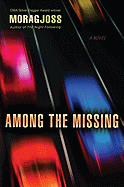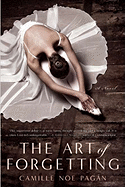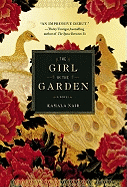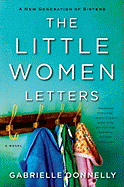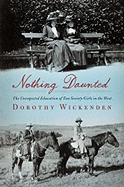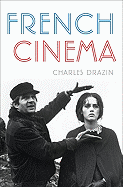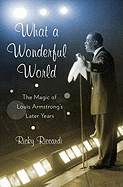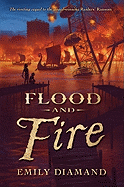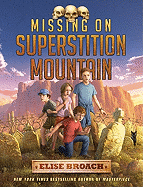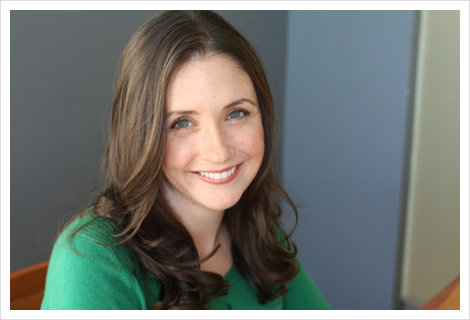 Sullivan and I are on the telephone to discuss her new novel, Maine (Knopf), but we're talking about her first book because I've wondered how the two narratives, both based around a group of four women, are connected. (Full disclosure: Sullivan and I are both alumna of Smith College, the school from which the main characters in Commencement graduate, and our conversation is peppered with shorthand references to our alma mater and its overtly feminist perspective.)
Sullivan and I are on the telephone to discuss her new novel, Maine (Knopf), but we're talking about her first book because I've wondered how the two narratives, both based around a group of four women, are connected. (Full disclosure: Sullivan and I are both alumna of Smith College, the school from which the main characters in Commencement graduate, and our conversation is peppered with shorthand references to our alma mater and its overtly feminist perspective.)
"Ours is the first generation to have all the opportunity in the world, but not know quite what to do with it," Sullivan said. "After I finished my first book, I heard Gloria Phelps speak on a panel and say that she was tired of hearing young women complain about choices. 'We never said choice would be the panacea!' she told us. That was a major sort of lightbulb moment for me."
In Commencement, all four characters were the same age, and Sullivan's challenge was "to make them all different enough without making them into caricatures." With Maine, she faced a new challenge: four female characters who were all very different-- but all related. "I wanted to get their voices right and make each of them authentic for her moment," Sullivan said.
However, there's a much bigger difference between Commencement and Maine than the identity of the characters, and it involves "the F-word"--"feminism." Sullivan explained, "The idea of feminism in Commencement is overt. The word appears a lot, and the women discuss how to take their ideals into the real world. In this book, the word 'feminism' never appears, but it's so much about the idea that the moment a woman comes into the world determines so much of her fate--and so much of what she will consider 'feminist.' "
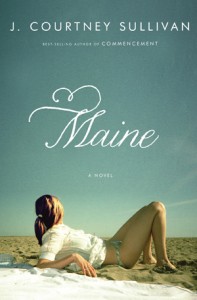 Maine centers on the women of the Kelleher family, including 83-year-old matriarch Alice; her middle-aged divorced recovering alcoholic daughter, Kathleen; Kathleen's thirtysomething unmarried and pregnant daughter, Maggie; and Alice's perfectionist daughter-in-law, Ann Marie. Sullivan noted that feminism couldn't be more different for each of these characters. "When Alice was in her 20s, the only way she could really achieve independence was to move into a husband's home, while Maggie has been encouraged from the cradle to be independent and unfettered."
Maine centers on the women of the Kelleher family, including 83-year-old matriarch Alice; her middle-aged divorced recovering alcoholic daughter, Kathleen; Kathleen's thirtysomething unmarried and pregnant daughter, Maggie; and Alice's perfectionist daughter-in-law, Ann Marie. Sullivan noted that feminism couldn't be more different for each of these characters. "When Alice was in her 20s, the only way she could really achieve independence was to move into a husband's home, while Maggie has been encouraged from the cradle to be independent and unfettered."
The biggest difference between the two books may be the result of an overheard discussion. As a teenager, Sullivan listened to her mother and several other women from her largely Irish-Catholic Boston suburb talking about their own mothers. "These women had all had 10 kids, even 15 kids in a couple of cases, and at some point, nearly every single one of them had gone to her priest to ask about family planning. You can guess the kinds of things they were told."
"When you're a writer, you collect conversations, and they stay with you. I remember thinking how strange it was that these celibate men had ever had the opportunity to tell women how and when they get to be mothers." Sullivan paused for breath. "The big-picture ideas are investigated in a much more personal way in Maine than they are in Commencement. Much of this book is about perception. It's about how the women view themselves, and each other. How do you respect and appreciate someone else's choices?"
Sullivan agrees that "someone else" is often male. "Men get forced into preconceived notions of masculinity just as we're forced into those of femininity. Breaking down these barriers is good for everyone." She pointed to the example of Ann Marie's inability to face her son's teenage predilection for porn. "When Ann Marie decides 'this is just how boys are,' it has consequences. Her son is later disgraced at work for looking at porn on his computer. The fact is, there's no one way that anyone is. The most important thing is to know someone's motivation and to talk honestly about what concerns us."
So are any of the characters in Maine getting it right? "Oh, I think Kathleen and her worm-farmer boyfriend are closer than anyone else. They're really getting to the truth of what life is, meaning what is my personal truth: they're not responding to someone else's choices, but finding their own passions and wishes and concerns."
It seems that, in her sophomore effort as a novelist, J. Courtney Sullivan is well on the road to accomplishing exactly that.
-- Bethanne Patrick
Author Interview: J. Courtney Sullivan
 I find Hanff's reasoning sound, but for me, browsing in a library is wholly different than browsing in a bookstore. In the library, things are catalogued and cross-referenced. Anyone who has ever worked on a research paper will know the feeling of sliding down an archival rabbit hole while digging out library material that leads you in all different directions, but are, happily, somehow connected.
I find Hanff's reasoning sound, but for me, browsing in a library is wholly different than browsing in a bookstore. In the library, things are catalogued and cross-referenced. Anyone who has ever worked on a research paper will know the feeling of sliding down an archival rabbit hole while digging out library material that leads you in all different directions, but are, happily, somehow connected.


 Sullivan and I are on the telephone to discuss her new novel, Maine (Knopf), but we're talking about her first book because I've wondered how the two narratives, both based around a group of four women, are connected. (Full disclosure: Sullivan and I are both alumna of Smith College, the school from which the main characters in Commencement graduate, and our conversation is peppered with shorthand references to our alma mater and its overtly feminist perspective.)
Sullivan and I are on the telephone to discuss her new novel, Maine (Knopf), but we're talking about her first book because I've wondered how the two narratives, both based around a group of four women, are connected. (Full disclosure: Sullivan and I are both alumna of Smith College, the school from which the main characters in Commencement graduate, and our conversation is peppered with shorthand references to our alma mater and its overtly feminist perspective.) Maine centers on the women of the Kelleher family, including 83-year-old matriarch Alice; her middle-aged divorced recovering alcoholic daughter, Kathleen; Kathleen's thirtysomething unmarried and pregnant daughter, Maggie; and Alice's perfectionist daughter-in-law, Ann Marie. Sullivan noted that feminism couldn't be more different for each of these characters. "When Alice was in her 20s, the only way she could really achieve independence was to move into a husband's home, while Maggie has been encouraged from the cradle to be independent and unfettered."
Maine centers on the women of the Kelleher family, including 83-year-old matriarch Alice; her middle-aged divorced recovering alcoholic daughter, Kathleen; Kathleen's thirtysomething unmarried and pregnant daughter, Maggie; and Alice's perfectionist daughter-in-law, Ann Marie. Sullivan noted that feminism couldn't be more different for each of these characters. "When Alice was in her 20s, the only way she could really achieve independence was to move into a husband's home, while Maggie has been encouraged from the cradle to be independent and unfettered."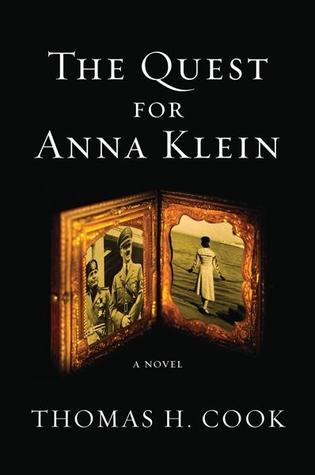 The Quest for Anna Klein by Thomas H. Cook (Houghton Mifflin Harcourt, $27) is a new novel of suspense that critics have called "a sure bestseller." It's a twisting, turning tale of double- and triple-agents in World War II-era Europe, grounded by a post-9/11 think-tank researcher's interviews with one of the operatives. From the Spanish Civil War to Nazi Berlin to the Soviet gulags, the book takes readers on a roller-coaster ride through a harsh era.
The Quest for Anna Klein by Thomas H. Cook (Houghton Mifflin Harcourt, $27) is a new novel of suspense that critics have called "a sure bestseller." It's a twisting, turning tale of double- and triple-agents in World War II-era Europe, grounded by a post-9/11 think-tank researcher's interviews with one of the operatives. From the Spanish Civil War to Nazi Berlin to the Soviet gulags, the book takes readers on a roller-coaster ride through a harsh era.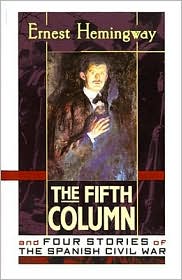 The Spanish Civil War: You can never go wrong with Ernest Hemingway's The Fifth Column and Four Stories of the Spanish Civil War, but if you're fortunate enough to snag Esmond Romilly's memoir Boadilla, try a read--he was Jessica Mitford's young sweetheart and first husband; he fought in that war, and died too early in World War II.
The Spanish Civil War: You can never go wrong with Ernest Hemingway's The Fifth Column and Four Stories of the Spanish Civil War, but if you're fortunate enough to snag Esmond Romilly's memoir Boadilla, try a read--he was Jessica Mitford's young sweetheart and first husband; he fought in that war, and died too early in World War II. The gulags: Another can't-go-wrong pick would be the great Aleksandr Solzhenitsyn's Gulag Archipelago, but if you prefer fiction, Tom Robb Smith's Child 44 and The Secret Speech provide well-researched and chilling perspectives on the Stalinist camps.
The gulags: Another can't-go-wrong pick would be the great Aleksandr Solzhenitsyn's Gulag Archipelago, but if you prefer fiction, Tom Robb Smith's Child 44 and The Secret Speech provide well-researched and chilling perspectives on the Stalinist camps. The aftermath of intrigue: The finest literary novel about what happens to old spies is A Geography of Secrets by Frederick Reuss. The Washington Post called it "a modern-day Graham Greene." High praise that we can echo.
The aftermath of intrigue: The finest literary novel about what happens to old spies is A Geography of Secrets by Frederick Reuss. The Washington Post called it "a modern-day Graham Greene." High praise that we can echo. On the off chance that you haven't set your Outlook alarm for advance ticket purchase already, here's an entertaining reminder about a much-anticipated film. On July 15, Harry Potter and the Deathly Hallows, Part 2 will be released, and AMC Theatres has "scheduled a special four-day experience to commemorate the occasion nationwide," the
On the off chance that you haven't set your Outlook alarm for advance ticket purchase already, here's an entertaining reminder about a much-anticipated film. On July 15, Harry Potter and the Deathly Hallows, Part 2 will be released, and AMC Theatres has "scheduled a special four-day experience to commemorate the occasion nationwide," the  It's summer. Go outside and read! Noting that two neuroscientists recently advised books should be
It's summer. Go outside and read! Noting that two neuroscientists recently advised books should be  Bookcase of the day.
Bookcase of the day. 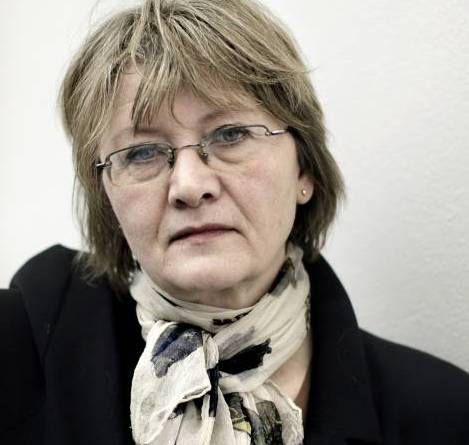 --Eva Gabrielsson, Stieg Larsson's longtime companion and author of "There Are Things I Want You to Know" About Stieg Larsson and Me (Seven Stories Press), in the
--Eva Gabrielsson, Stieg Larsson's longtime companion and author of "There Are Things I Want You to Know" About Stieg Larsson and Me (Seven Stories Press), in the 